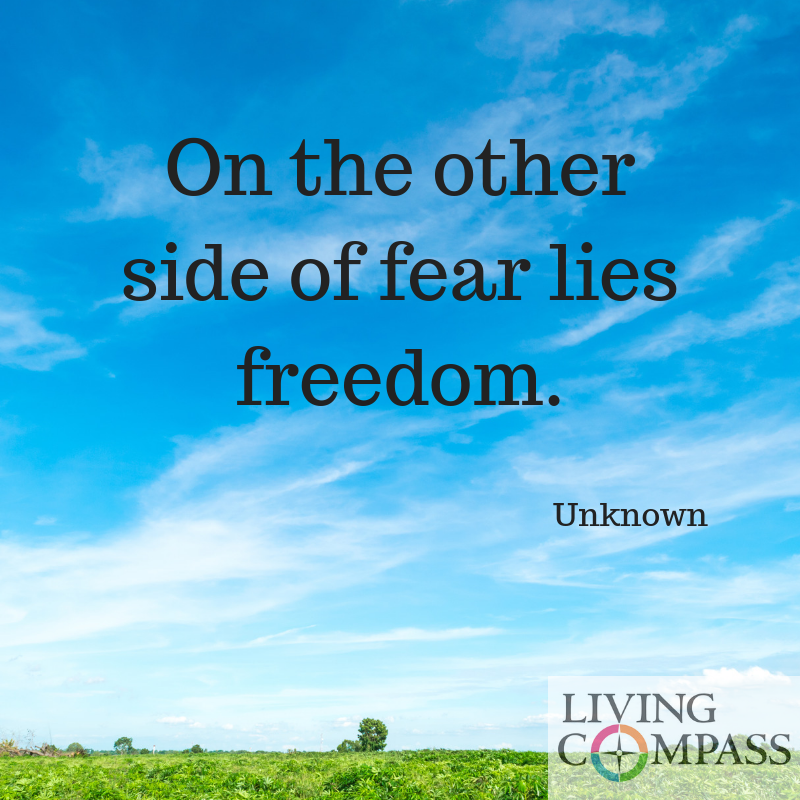On Freedom
As our nation celebrated Independence Day this week, I found myself thinking about what it means to be free. The most common meaning of freedom I find for most people has to do with being free from an external control. This, of course, is the understanding the founders of our nation had in mind when they signed the Declaration of Independence, declaring our new country's freedom in 1776.
There is another meaning of freedom though that I am quite familiar with as a pastor and a therapist. This meaning of freedom is more of an internal experience, as when a person announces to me, "When I first came in here and talked about my guilt for what I had done, it was very painful. I feel like talking has helped, and I feel that it has freed something up in me." Another example of this kind of freedom is when I hear, "I used to feel so 'stuck' in my grief and sadness, but now that I've been facing it, I feel small signs renewed energy that has been freed up in me."
Whenever we feel trapped or stuck in life, it is essential that we take some time to reflect on whether the cause of this trapped or stuck feeling is external or internal. Most of us have had the experience of thinking we were trapped by a job, a relationship, or the place where we were living, only to realize later after we left the job, relationship or place, that we still felt the same trapped way. There is a book entitled, Wherever You Go, There You Are, that explains quite well that whatever external changes we may make, we inevitably take our internal selves with us.
We are all undoubtedly familiar with the ways a person can be held captive externally, but what are some of the ways a person can be held captive internally? I referred to two examples earlier--a person can be held captive by unresolved guilt or by grief. A person can also be held captive by a bad habit or an addiction. Shame holds many people captive, especially people who have experienced abuse or neglect. Worry, anxiety, and fear have probably kept most of us captive at one time or another in our lives.
In the eighth chapter of the Gospel of John, Jesus and his disciples have a discussion about the external and internal meanings of freedom. Jesus says to his disciples, "You will know the truth, and the truth will make you free." His followers do not understand that he is talking about an internal sense of freedom, and they respond to Jesus by letting him know that he is not making sense to them. They have never been held captive by anyone they declare. In their minds, they are already free because they are talking about freedom from an external captor. Jesus is inviting them into another meaning of freedom, an internal freedom that is both spiritual and emotional and is one that they have not yet experienced.
So in honor of the 4th of July, let's all take this same invitation, an invitation to greater freedom by declaring our independence from whatever may be controlling us internally. The first step is to acknowledge where we feel stuck or trapped--to identify in what way we long to feel freer. After we have done this, we will need to discern what is that truth that will set us free--what must we learn, say or do to get unstuck? Do we need to face a secret in our lives that we have been hiding from ourselves and others? Do we need to have a difficult conversation with someone we love? Do we need to deepen our spiritual life? Do we need to change a bad habit? As we do this, we will soon learn that we may need the support of others in our efforts. We will most likely need the help of friends, family, a spiritual leader/and or community, a coach, or a counselor. Let's remember that creating the Declaration of Independence was a group effort too!
As we remember and celebrate the founding of our nation, may we be inspired to persevere in discovering and living the truth in our lives that will set us free as well.
Happy Independence Day, everyone!
(I am taking a few days off or the holiday weekend and so this column is an updated version of a previous column I wrote several years ago.)
Subscribe Now to Weekly Words of Wellness:
Click the button below to signup for the e-mail version of Weekly Words of Wellness. This weekly article can be shared with your community electronically and/or used for group discussion.
You can unsubscribe at any time.




